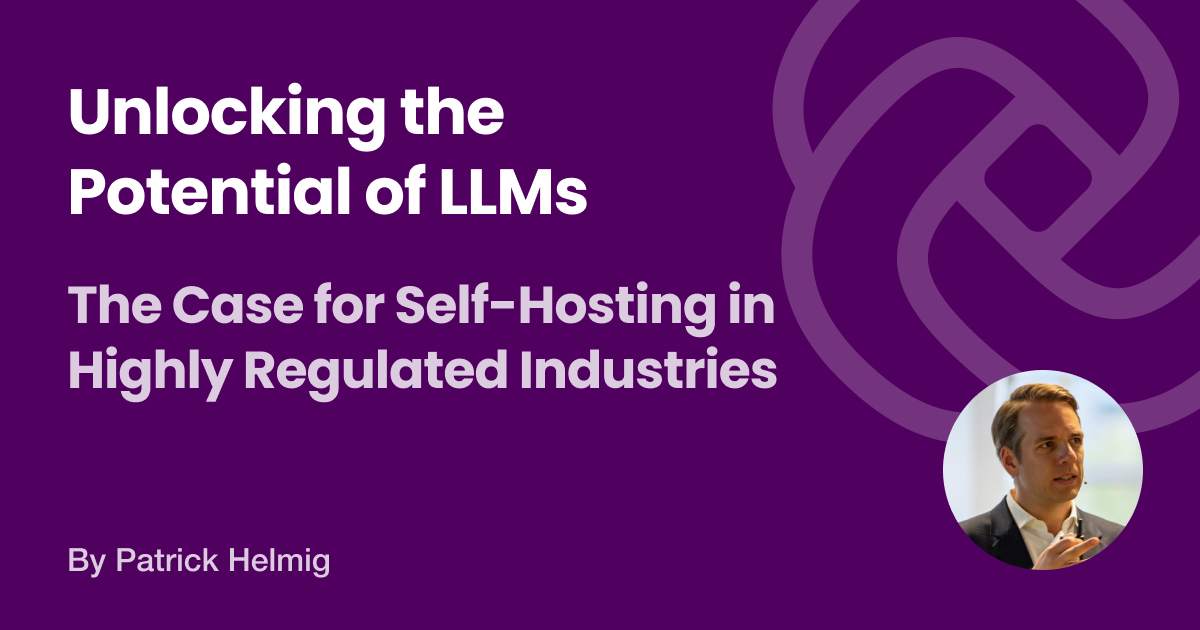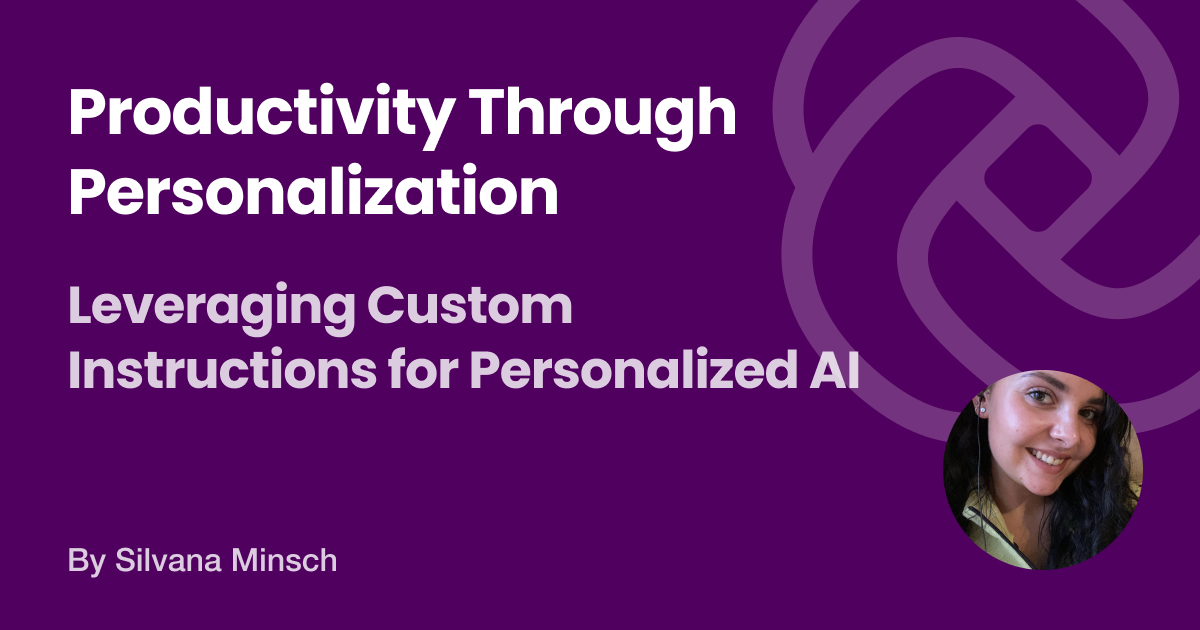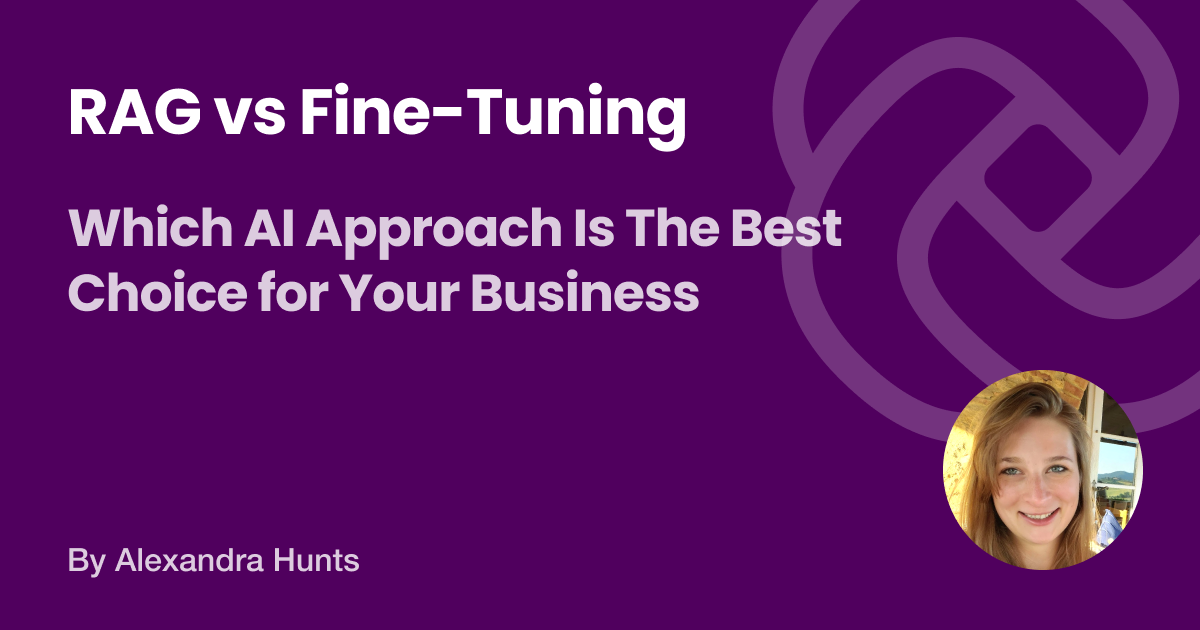
Regulatory Compliance in AI — The Strategic Advantage of Self-Hosted Language Models.
Unlocking the Potential of LLMs — The Case for Self-Hosting in Highly Regulated Industries
Published on April 2nd, 2024
Large language models, or LLMs, are powerful AI models that can understand, generate, and manipulate human language. Their versatility has led to their applications in various industries, such as customer support (chatbots), content creation, language translation, sentiment analysis, and data analysis.
However, highly regulated industries face unique challenges in adopting LLMs due to strict compliance requirements, data privacy concerns, and the need for consistent and explainable model behavior. These industries must ensure that the technology they employ aligns with industry-specific regulations and standards, which can be a complex and demanding process.
The Need for Consistency and Control in Highly Regulated Industries
Industries such as healthcare (HIPAA, FDA), finance (SOX, PCI DSS), and legal (attorney-client privilege) are subject to stringent regulations governing data handling, privacy, and decision-making processes. To maintain compliance, protect sensitive information, and ensure the integrity of operations, these industries require strict control over their tools and processes.
The Risks of Inconsistent LLM Behavior
Inconsistencies can lead to severe legal and financial consequences. For example, in healthcare, an LLM producing inconsistent results could contribute to a misdiagnosis or improper treatment plan, putting patient lives at risk and exposing the provider to malpractice lawsuits. Similarly, in finance, an inconsistent fraud detection model could lead to missed fraud cases, resulting in financial losses and regulatory fines.
Model behavior directly impacts compliance in these industries. If an LLM produces inconsistent or biased results, it may violate regulations, lead to incorrect decisions, or compromise privacy. The consequences of such failures can be severe, including financial penalties, legal liabilities, reputational damage, and loss of customer trust.
The Challenges of Using Cloud-Based LLMs
Providers frequently update cloud-based LLMs to improve performance, fix bugs, and add new features. While updates are intended to enhance the model, they can also introduce changes in model behavior, such as altered outputs, biases, or performance variations. This variable inconsistency poses challenges for highly regulated industries that rely on predictable and stable results.
Maintaining certification for technologies with continuous updates is a complex and resource-intensive process. Each update may require re-certification, extensive testing, and validation to ensure regulation compliance.
Moreover, cloud-based LLMs’ changeability makes it difficult for highly regulated industries to establish and maintain trust in the technology. This also complicates auditing, reporting, and explaining model decisions to regulators, as the underlying model may have changed since the original certification.
The Benefits of Self-Hosting LLMs with Omnifact Self-hosting
Self-hosting involves deploying and running LLMs on an organization’s own infrastructure, giving them full control over the model, data, and updates. Omnifact is a platform that enables organizations to self-host LLMs, providing a solution to the challenges associated with cloud-based models.
| Feature | Cloud-Based LLMs | Self-Hosted with Omnifact |
|---|---|---|
| Model Control | Limited | Full control over model versions and updates |
| Consistency | Subject to uncontrolled updates | Lock specific model versions for stable behavior |
| Compliance | Impossible to guarantee consistent behaviour | Simplified, version-locked models easier to certify |
| Customization | Limited | Fully customizable for specific use cases |
| Cost | Ongoing cloud service fees | One-time setup costs, no ongoing fees |
| Security | Data sent to cloud provider | Data stays on-premises for maximum security |
Self-hosting with Omnifact resolves the possible issues associated with cloud-based LLMs by allowing organizations to lock-in a specific model version, ensuring consistent behavior and outputs. This version control enables organizations to maintain a stable, certified model for production use while experimenting with updates in a controlled environment. By reducing compliance risks and simplifying auditing, self-hosting with Omnifact empowers highly regulated industries to adopt LLMs confidently.
In addition to consistency and control, self-hosting with Omnifact can save costs by eliminating ongoing cloud service fees. It also provides enhanced security by keeping sensitive data on-premises and allows for customization to improve performance for specific use cases.
Implementing Self-Hosted LLMs in Highly Regulated Use Cases
Self-hosted LLMs can be applied in various highly regulated use cases:
- A healthcare provider for clinical decision support
- A bank using it for fraud detection
- A law firm using it for contract analysis
The organization would fully control the model and data in each case, ensuring compliance with industry-specific regulations.
Implementation Best Practices
Implementing self-hosted LLMs involves several key steps:
- Select an appropriate LLM and hosting infrastructure
- Define clear governance policies around model updates and usage
- Establish rigorous testing and certification processes
- Conduct regular audits and maintain detailed documentation
Organizations must thoroughly validate the model against industry regulations, testing extensively for edge cases, fairness, and performance. To minimize risks, clear processes must govern how model updates are validated and promoted to production.
Conclusion
Self-hosted LLMs provide greater control, consistency, and compliance than cloud-based solutions, making them advantageous for highly regulated industries.
Omnifact empowers organizations to transition to self-hosted LLMs by providing a flexible platform that supports different models and allows for seamless switching between cloud-based and self-hosted deployments.
The key takeaways are:
- Consistency and control are crucial for LLM usage in regulated industries
- Self-hosting enables compliance and builds trust in AI models
- Implementation requires careful planning around governance and testing
By embracing self-hosted LLMs with Omnifact, highly regulated industries can harness the power of these transformative technologies while navigating the complexities of compliance and ensuring the integrity of their operations.
Ready to explore how Omnifact can enable self-hosted LLMs in your organization? Contact our sales team today to discuss your use case and arrange a demo.

